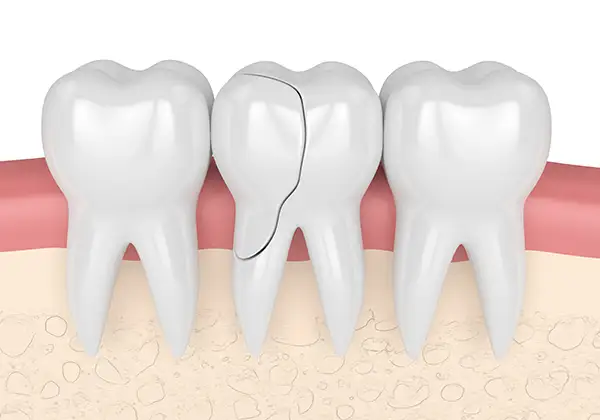Cracked Tooth Repair Experiencing a cracked, chipped, or broken tooth can be both painful and alarming. Understanding the causes, symptoms, and treatment options is essential for maintaining optimal oral health. At Avery Dental Center, our dental team is dedicated to providing comprehensive care for all types of tooth fractures. Experiencing a cracked, chipped, or broken tooth can be both painful and alarming. Understanding the causes, symptoms, and treatment options is essential for maintaining optimal oral health. At Avery Dental Center, our dental team is dedicated to providing comprehensive care for all types of tooth fractures.Understanding Cracked TeethA cracked tooth encompasses various types of fractures, each with distinct characteristics:
Common causes of tooth fractures include:
Symptoms indicating a cracked tooth may involve:
Even minor cracks can worsen if left untreated, potentially leading to more severe dental issues. Some cracks may be invisible to the naked eye, emphasizing the importance of regular dental check-ups. When to Seek Emergency Dental CareImmediate dental attention is crucial if you experience:
Delaying treatment can result in:
Before reaching the dentist, consider:
Emergency dental appointments typically involve a thorough examination, pain management, and immediate steps to prevent further damage. Treatment Options for Cracked TeethTreatment varies based on the severity and location of the crack:
Each treatment aims to restore the tooth's integrity and prevent further complications. Recovery times and procedures vary, with bonding often completed in one visit, while crowns and root canals may require multiple appointments. Long-Term Outcomes and Preventive CarePost-treatment, maintaining oral health is vital:
Adopting these practices helps prevent future fractures and ensures the longevity of dental restorations. What to Expect at Your Dental VisitUnderstanding the process can alleviate anxiety:
Early intervention often results in less invasive treatments and better outcomes. Schedule Your Appointment TodayIf you're experiencing symptoms of a cracked tooth, don't delay seeking professional care. Early diagnosis and treatment are key to preserving your oral health and preventing further complications. Contact Avery Dental Center at (380) 257-1684 to schedule your consultation or emergency appointment. FAQsWhat causes a cracked tooth?Cracked teeth can result from various factors, including trauma to the mouth, habitual teeth grinding (bruxism), large fillings that weaken the tooth structure, and age-related wear and tear.Can a cracked tooth heal on its own?No, a cracked tooth cannot heal by itself. Without treatment, the crack can worsen, leading to more severe dental issues. Prompt dental care is essential to prevent complications.How do I know if I need emergency dental care for a cracked tooth?Seek emergency dental care if you experience severe pain, swelling, bleeding, or if the tooth is visibly damaged or has exposed nerve tissue. These symptoms indicate a need for immediate attention.What are the treatment options for a cracked tooth?Treatment options depend on the severity of the crack and may include dental bonding for minor chips, crowns for significant cracks, root canal therapy if the pulp is affected, or extraction if the tooth is beyond repair.How can I prevent my teeth from cracking in the future?Preventive measures include avoiding chewing on hard objects, wearing a night guard if you grind your teeth, maintaining good oral hygiene, and visiting your dentist regularly for check-ups. |